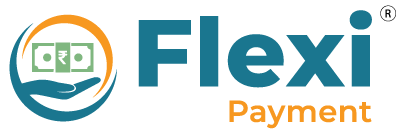Without consistent cash flow, companies often struggle to meet their day-to-day expenses, manage vendor payments, or navigate low phases in their business cycle.
Thankfully, innovative financing options like Supply Chain Finance and Invoice Discounting make it easier for businesses to unlock funds tied up in receivables. These solutions provide quick access to working capital without the burden of traditional loans or lengthy approval processes.
At FlexiPayment, we help businesses strengthen their cash flow with fast, reliable financing solutions that support both buyers and suppliers. Whether it’s leveraging Supply Chain Finance to optimize payment terms or using Invoice Discounting for immediate liquidity, our platform ensures you can keep your operations running seamlessly and profitably.
What Is Supply Chain Finance?
Supply chain finance, also called payables finance, is a financing solution that benefits both buyers and suppliers. It optimises working capital by allowing suppliers to receive early payments on their invoices, while buyers get extended payment terms.
In a supply chain finance arrangement, three parties are involved –
- Buyer
- Supplier
- Financier
Here’s how it works: The supplier raises an invoice on the buyer and sells it to a financier at a discounted rate. The financier pays the supplier immediately, ensuring liquidity and smooth operations. Later, on the invoice due date, the financier collects the payment directly from the buyer.
Since a third party is involved, this method is transparent but not confidential.
What Is Invoice Discounting?
Invoice discounting is another way to unlock cash tied up in unpaid invoices. Here, businesses use their accounts receivable (sales ledger) to raise funds quickly.
Unlike supply chain finance, invoice discounting usually involves only two parties –
- Seller
- Financier
In this case, the seller receives an advance against unpaid invoices from the financier. Once customers settle their invoices, the business pays back the financier and receives the remaining balance after charges.
Since only the seller and financier are involved, invoice discounting is completely confidential. Customers are unaware of the arrangement.
Supply Chain Finance Vs Invoice Discounting – Key Differences
| Factor | Supply Chain Finance | Invoice Discounting |
| Parties Involved | Buyer, Seller, Financier | Seller, Financier |
| Confidentiality | Not confidential | Completely confidential |
| Control Over Collections | Financier collects from buyer | Seller collects from customer |
| Best Suited For | Large businesses with strong buyer-supplier relationships | SMEs looking for quick working capital |
| Working Capital Benefit | Both buyers & suppliers | Mainly suppliers |
Similarities Between Supply Chain Finance and Invoice Discounting
Despite the differences, both solutions share common benefits:
- Provide quick access to working capital
- Work as alternatives to traditional loans
- Have simpler eligibility criteria and faster approval processes
- Help businesses manage delayed payments and avoid cash flow crunches
Industries like manufacturing, trading, recruitment, construction, and wholesale often rely on these financing options to maintain smooth operations.
Which One Should You Choose?
The right choice depends on your business structure, scale, and financial needs.
- If you’re an SME seeking confidential access to funds, Invoice Discounting is often the better choice.
- If you’re a larger organisation with strong buyer-supplier networks, Supply Chain Finance may help optimise working capital for both parties.
At Flexipayment, we specialise in helping businesses bridge working capital gaps with flexible and efficient invoice discounting solutions. By unlocking funds tied up in receivables, we ensure that companies stay liquid, competitive, and ready to grow.
